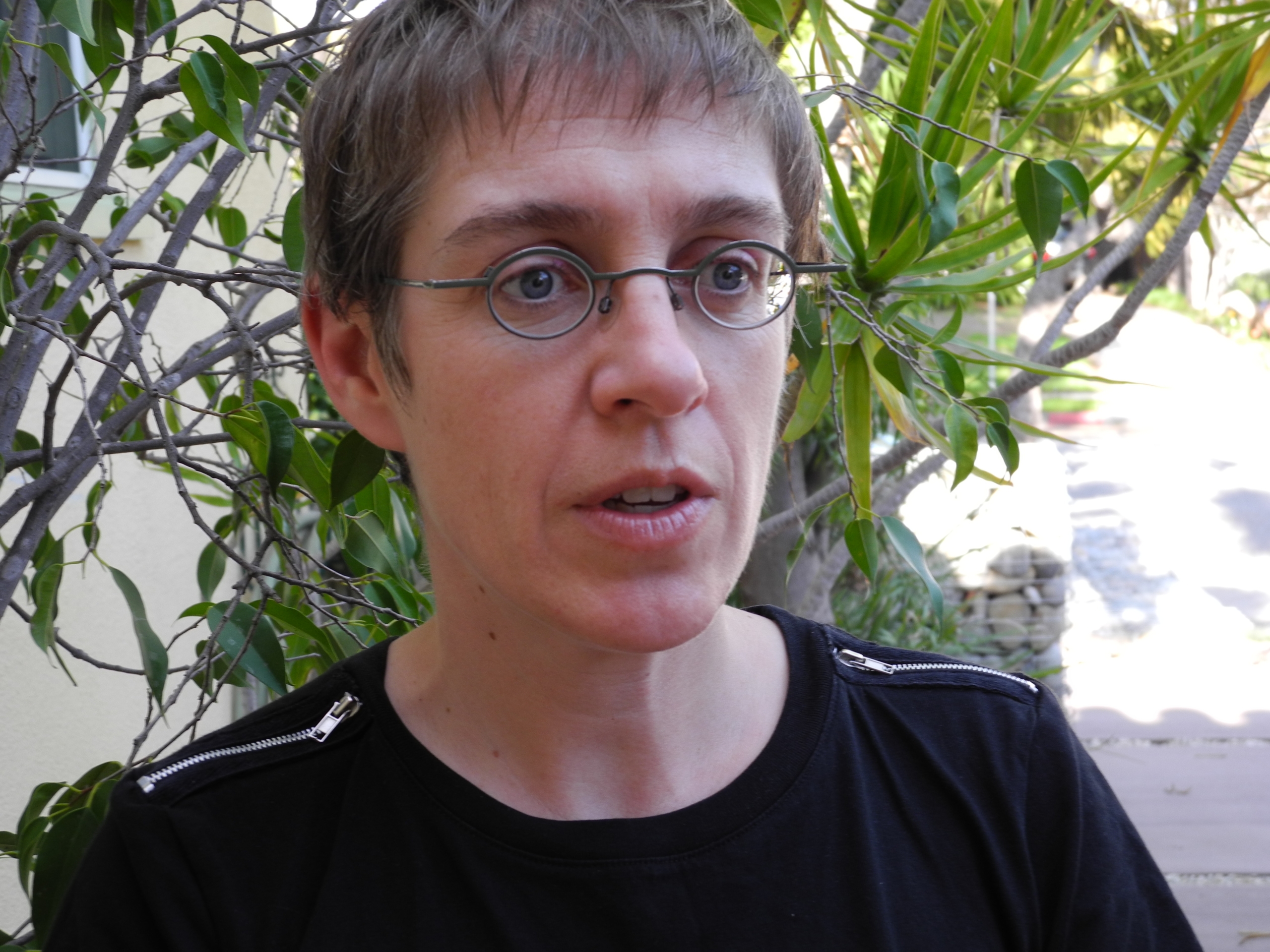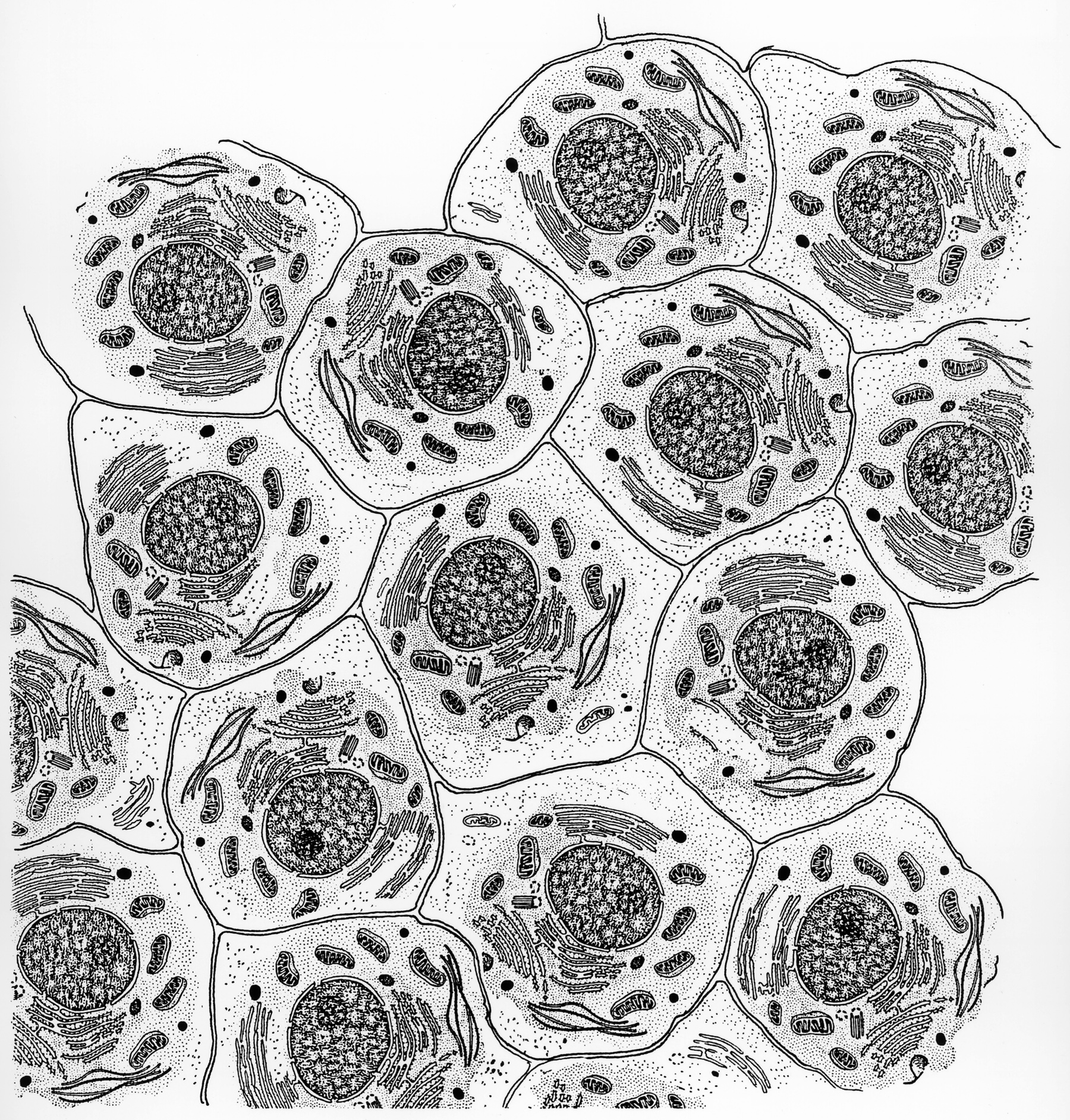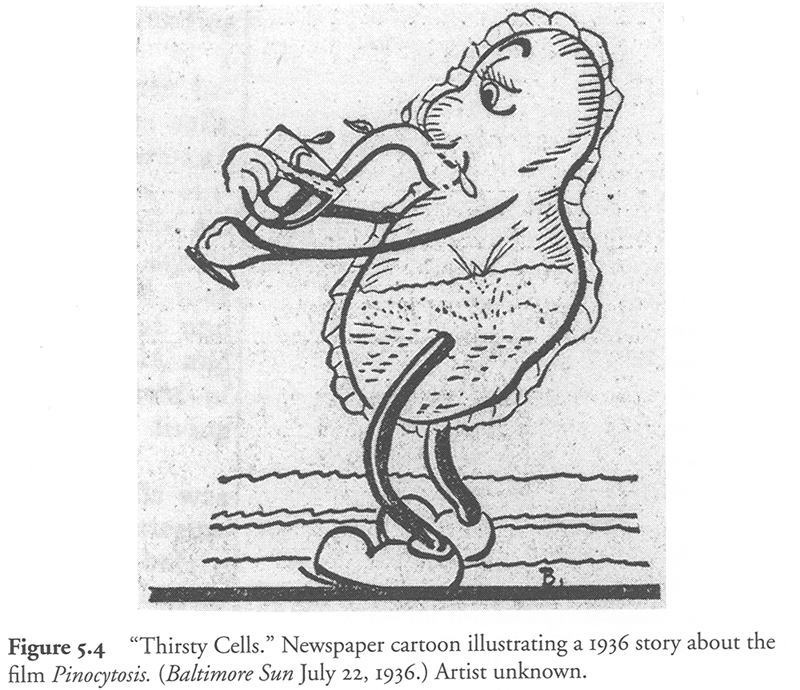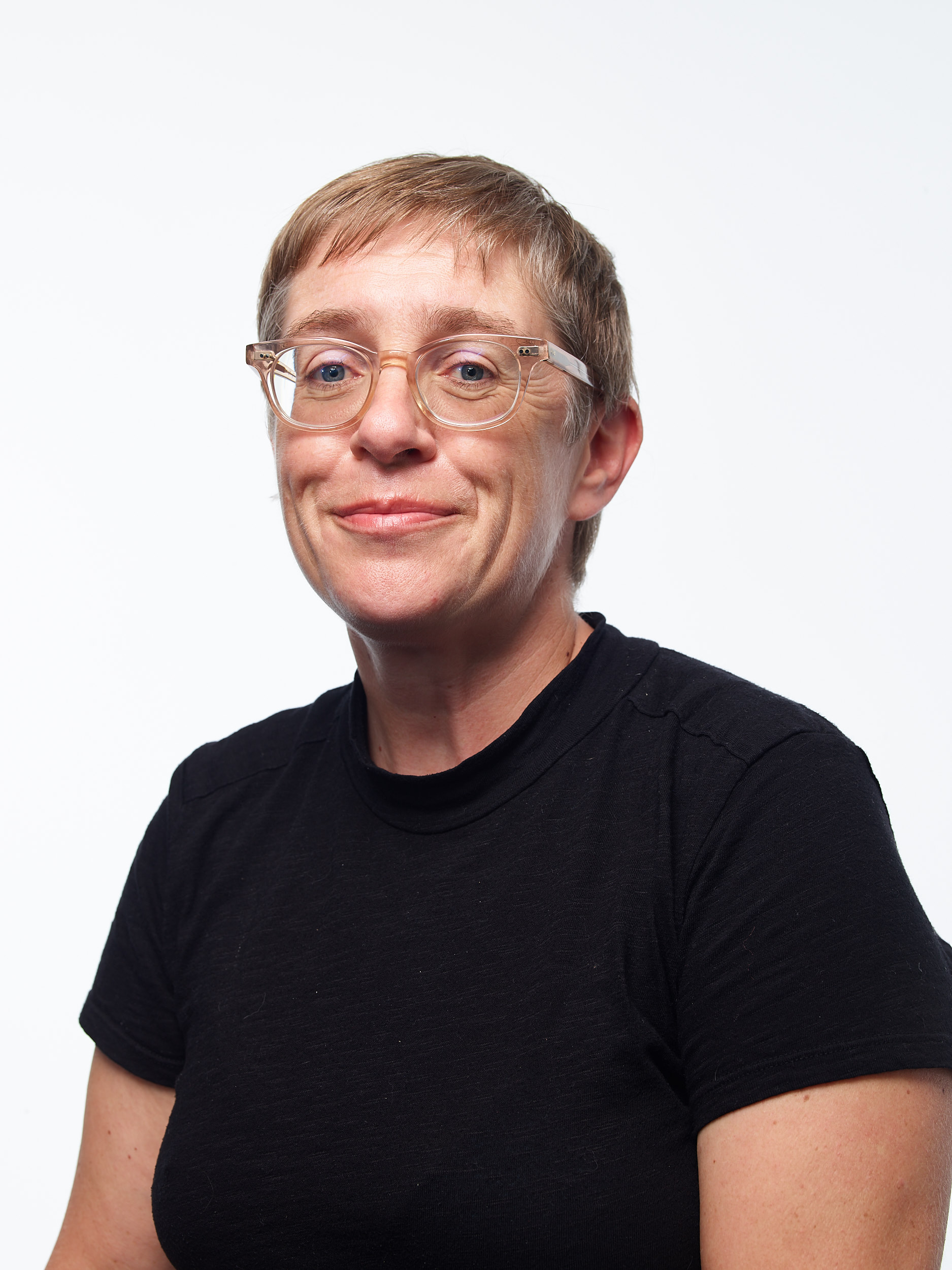Hannah Landecker
Biography

My work takes place at the intersection of the life and social sciences.
The social and historical study of biotechnology and life science, from 1900 to now, is my area of specialization. I hold a joint appointment between the Department of Sociology and the Institute for Society and Genetics, an interdisciplinary teaching and research unit in Life Science which houses the Human Biology and Society major; I serve as the Associate Dean for Undergraduate Education in the Division of Life Sciences; and I am co-director of UCLA’s Center for Reproductive Science, Health and Education. I am a senior editor of BioSocieties, a journal dedicated to the social, ethical and policy implications of developments in the life sciences.
To read more about the research, please browse my publications below. I have been interviewed recently by The College Hill Independent, Köpfe und Ideen, Mold Magazine, Technosphere Magazine, and Theory, Culture and Society, and my slightly less academic sojourns can be found in e-flux, Noema, isolarii, and several recent art catalogs such as Pakui Hardware: Shape Shifters, and Vanessa Billy: We Become/Redevenir. All of my publications are available on Research Gate.

4.0.4

Degrees
Ph.D., Massachusetts Institute of Technology, 2000
B.Sc. (Honours) University of British Columbia, 1993
Research
My research contributions sort into three interrelated areas of emphasis: 1) the role of social science in an age of anthropogenic biology 2) the history and sociology of metabolism; 3) research on antibiotic resistance. I am currently writing a book called “American Metabolism,” which traces the history of the concept of metabolism; explores the operationalization of metabolic processes and objects such as enzymes and antioxidants in mass production and industrial agriculture; and analyses the embodied legacies of metabolism after industrialization.
Publications
Publications:
Landecker, H. “Life as Aftermath: Social Theory for an Age of Anthropogenic Biology,” Science, Technology and Human Values 50(4):679-712, 2025.
Hein, R.J., A. Le Goff, and H. Landecker, “Making and disposing of life’s ‘starting materials’: A focus group study of attitudes concerning reproductive scarcity and abundance in in vitro gametogenesis,” Social Science and Medicine 379, 2025.
Le Goff, A. and H. Landecker, “Genome Engineering, Chemical Exposure, and the Germline: An Ethical Synthesis,” Hastings Center Report 55(2):39-51, 2025.
Landecker, H., “The Underlying Condition as Disease Ecology: Covid-19 and the Anthropogenic Body of Infection,” pp. 176-191 in S. Opitz, A. Wiegeshoff, and C. Mezes, eds., Ecologies of Disease Control: Spaces of Health Security in Historical Perspective, Pittsburgh University Press, 2025.
Haraoui, L.P., A. Rizk, and H. Landecker, “States of Resistance: Nosocomial and Environmental Approaches to Antimicrobial Resistance in Lebanon,” History and Philosophy of the Life Sciences 46, 28, 2024.
Landecker, H. “Cell Freezing and the Biology of Inexorability: Cryoprotectants and Chemical Time,” BioSocieties 19:635-655, 2024.
Le Goff, A., R. Jeffries Hein, A.N. Hart, I. Roberson, and H. Landecker, “Anticipating in vitro Gametogenesis: Hopes and concerns for IVG Among Diverse Stakeholders,” Stem Cell Reports 19(7):933-945, 2024.
Landecker, H. and A. T. Clark, “Human Embryo Models Made from Pluripotent Stem Cells Are Not Synthetic. They Aren’t Embryos, Either,” Cell Stem Cell 30:1290-1293, 2023.
Landecker, H., “The Food of our Food: Medicated Feed and the Industrialization of Metabolism,” 56-85 in H. Paxson, ed., Eating Beside Ourselves: Thresholds of Food and Bodies, Duke University Press, 2023.
Landecker, Hannah. “Viruses are More Like Cone Snails Than Hijackers,” e-flux Journal, Issue #130, October 2022.
Campbell-Staton, S.C., R.H. Walker, S.A. Rogers, J. De Léon, H. Landecker, W. Porter, P.D. Matthewson, R.A. Long, “Physiological Costs of Undocumented Human Migration Across the Southern United States Border,” Science 374(6574): 1496-1500, 2021.
Neubauer, C. and H. Landecker, “Ten Percent of Human Cellular Methionine is Synthetic in Origin: Implications of Opening the Tap on a Historically Limiting Nutrient,” Lancet Planetary Health 5(8):E560-E569, 2021.
Landecker, H., “Trace Amounts at Scale: Arsenicals, Medicated Feed, and the ‘Western Diet’,” 187-213 in A.N.H. Creager and J.P. Gaudillière eds, Risk at the Table: Food Production, Health, and the Environment, Berghahn Press, 2021.
Le Goff, A., P. Allard, and H. Landecker, “Heritable Changeability: Epimutation and the Legacy of Negative Definition in Epigenetic Concepts,” Studies in the History and Philosophy of Science, Part A 86:35-46, 2021.
Bazzi, Wael, Antoine Abou Fayad, Aya Nasser, Louise-Patrick Haraoui, Vinh-Kim Nguyen, Omar El-Diwachi, Ghassan Soleiman Abu SItta, Hannah Landecker, Aula Abbara, Charles W Knapp, Megan McEvoy, Muhammad H Zaman, Paul G Higgins, Ghassan M Matar, “Resistance to heavy metals in Acinetobacter baumannii: may be increased in conflict settings,” Frontiers in Microbiology. 2020;11:68.
Lappé, Martine, Robbin Jeffries Hein, and Hannah Landecker. “Environmental Politics of Reproduction.” Annual Review of Anthropology 48:133-150 (2019) [Annual Reviews].
Khan, Atif, Oleguer Plana-Ripoll, Sussie Antonsen, Jørgen Brandt, Camilla Geels, Hannah Landecker, Patrick F. Sullivan, Carsten Bøcker Pedersen, and Andrey Rzhetsky. “Environmental pollution is associated with increased risk of psychiatric disorders in the US and Denmark.” PLoS biology 17, no. 8 (2019): e3000353.
Landecker, Hannah. “A metabolic history of manufacturing waste: food commodities and their outsides.” Food, Culture & Society 22, no. 5 (2019): 530-547. [open access publication available here]
Landecker, Hannah. “Antimicrobials Before Antibiosis: War, Peace and Disinfectants,” Palgrave Communications 5:45 (2019). [open access publication available here]
Landecker, Hannah. “On The Odor of Rancid Butter, A Twentieth Century Update,” History of Anthropology Newsletter 43 (2019): http://histanthro.org/notes/odor-of-rancid-butter/.
Kelty, Christopher, and Hannah Landecker, “Outside In: Microbiomes, Epigenomes, Visceral Sensing, and Metabolic Ethics,” 53-65 in After Practice: Thinking through Matter(s) and Meaning Relationally, edited by The Laboratory for the Anthropology of the Environment and Human Relations, Berlin: Panama Verlag, 2019.
Landecker, Hannah. “The Matter of Practice in the Historiography of the Experimental Life Sciences,” 1-22 in M. Dietrich and M. Borrello, eds. Handbook of the Historiography of Biology, Springer, 2018.
Landecker, Hannah. “Metabolism, Autonomy, Individuality,” 225-248 in What is an Individual? Where Philosophy, History and Biology Coincide, L. Nyhart & S. Lidgard eds.,Chicago University Press, 2017.
Landecker, Hannah. “The Social as Signal in the Body of Chromatin,” The Sociological Review Monographs 64(1):79-99, 2016.
Landecker, Hannah. “It is what it eats: Chemically defined media and the history of surrounds.” Studies in History and Philosophy of Science Part C: Studies in History and Philosophy of Biological and Biomedical Sciences, 2016.
Lappé, Martine and Hannah Landecker. “Sociology in an Age of Genomic Instability: Copy Number Variation, Somatic Mosaicism, and the Fallen Genome,” Advances in Medical Sociology Volume 16: Genetics, Health and Society, pp.157-186, 2015. (Selected as Outstanding Author Contribution in the 2016 Emerald Literati Network Awards for Excellence).
Landecker, Hannah. “Commentary: The Information of Conformation,” International Journal of Epidemiology, Advance Online Publication April 7, 2015.
Lappé, Martine, and Hannah Landecker. “How the Genome got a Life Span,” New Genetics and Society 34(2):152-176, 2015.
Landecker, Hannah. “Antibiotic Resistance and the Biology of History,” Body and Society 22(4):19-52, 2016. [open access publication available here]
Panofsky, Aaron, and Hannah Landecker. “From Social Structure to Gene Regulation, And Back: A Critical Introduction to Environmental Epigenetics for Sociology,” Annual Review of Sociology 39:333-357, 2013.
Landecker, Hannah. “Metabolism, Reproduction, and the Aftermath of Categories,” Feminist & Scholar Online 11(3): Summer 2013.
Landecker, Hannah. “When the Control Becomes the Experiment,” Limn 3: Sentinel Devices, 2013. here.
Landecker, Hannah. “Post-Industrial Metabolism: Fat Knowledge,” Public Culture 25(3):495-522, 2013.
Landecker, Hannah. “The Metabolism of Philosophy, in Three Parts,” 193-224 in Dialectic and Paradox: Configurations of the Third in Modernity, B. Malkmus and I. Cooper, eds., Bern: Peter Lang, 2013.
Landecker, Hannah. “The Life of Movement: From Microcinematography to Live Cell Imaging,” Journal of Visual Culture 11(3):378-399, 2012.
Landecker, Hannah. “Food as Exposure: Nutritional Epigenetics and the New Metabolism,” BioSocieties 6:167-194, 2011. [open access publication here]
Landecker, Hannah. “Creeping, Dying, Drinking: The Cinematic Portal and the Microscopic World of the Twentieth Century Cell,” Science in Context24(3):381-416, 2011.
Landecker, Hannah. “Seeing Things: From Microcinematography to Live Cell Imaging,” Nature Methods 6:707-709, 2009.
Landecker, Hannah, and Angela N.H. Creager, “Technical Matters: method, knowledge and infrastructure in twentieth century life science,” Nature Methods 6:701-705, 2009. here.
Landecker, Hannah. “Living Differently in Time: Plasticity, Temporality and Cellular Biotechnologies,” in Technologized Images, Technologized Bodies: Anthropological Approaches to a New Politics of Vision, Jeanette Edwards, Penny Harvey and Peter Wade, eds. New York: Berghahn Books, 2010. [online version]
Culturing Life: How Cells Became Technologies, Harvard University Press, 2007
Landecker, Hannah. “Microcinematography and the History of Science and Film,” Isis, 97:121-132, 2006.
Landecker, Hannah. “Cellular Features: Microcinematography and Early Film Theory,” Critical Inquiry 31:903-937, 2005.
Kelty, Christopher, and Hannah Landecker. “A Theory of Animation: Cells, L-Systems, and Film,” Grey Room, 17:30-63, 2004.
Landecker, Hannah. “The Lewis Films: Tissue Culture and ‘Living Anatomy’, 1919-1940,” 117-144 in Centennial History of the Carnegie Institute Department of Embryology, Jane Maienschein, Marie Glitz and Garland Allan (eds.), Cambridge University Press, 2004.
Landecker, Hannah. “Building ‘A New Type of Body in Which to Grow a Cell’: The Origins of Tissue Culture,” 151-174 in Creating a Tradition of Biomedical Research: Contributions to the History of The Rockefeller University, Darwin Stapleton (ed.), New York: Rockefeller University Press, 2004.
Landecker, Hannah. “On Beginning and Ending with Apoptosis: Cell Death and Biomedicine,” in Remaking Life and Death: Towards an Anthropology of the Life Sciences, edited by Sarah Franklin and Margaret Lock, School of American Research Press, 2003.
Landecker, Hannah. “New Times for Biology: Nerve Cultures and the Advent of Cellular Life in Vitro,” Studies in the History and Philosophy of Biological and Biomedical Sciences, 33:667-694, 2002.
Landecker, Hannah. “Immortality, In Vitro: A History of the HeLa Cell Line,” in Biotechnology and Culture: Bodies, Anxieties, Ethics, edited by Paul Brodwin, Theories of Contemporary Culture series, Indiana University Press, 2000. Reprinted in A Reader in Medical Anthropology: Theoretical Trajectories, Emergent Realities, Byron Good, Michael Fischer, Sarah Willen, Mary-Jo Delvecchio-Good (eds.), pp. 353-366, Wiley-Blackwell, 2010.
Landecker, Hannah. “Between Beneficence and Chattel: The Human Biological in Law and Science,” Science in Context 12(1): 203-225, 1999. Reprinted in Law and Science, Volume II: Epistemological, Evidentiary, and Relational Engagements, International Library of Essays in Law and Society, Susan Silbey, ed., Ashgate Publishing, 2008, pp. 181-204.
Awards & Grants
Awards
- Eby Award for the Art of Teaching, UCLA Distinguished Teaching Prize, 2024
- Fellow, Canadian Institute for Advanced Research, Future Flourishing Program, 2023-2028.
- Wissenschaftskolleg zu Berlin, Fellowhip, 2021-2022
- USC Dorsife Berggruen Fellowship, 2017-2018.
- American Council for Learned Societies Fellowship, 2012.
- Suzanne J. Levinson Book Prize, History of Science Society, 2008 (for Culturing Life).
- National Endowment for the Humanities Fellowship, 2005.
- Rice University Graduate Student Teaching and Mentoring Award, 2005.
Grants
- Primary Investigator, “Ethical and Social Implications of In Vitro Gametogenesis,” National Institutes of Health, 2021-2023.
- Co-Primary Investigator, “Reconstructing the social and environmental forces driving the evolution of multidrug-resistant Acinetobacter baumannii in Lebanon: an exploratory interdisciplinary study integrating molecular epidemiology and socio-historical data,” New Frontiers in Research Fund Government of Canada (LP Haraoui, PI), 2020-2022.
- Co-Primary Investigator, “A Chance for Equality in Health? Transgenerational Epigenetics and Ancestral Environmental Exposures,” John Templeton Foundation (P. Allard, PI) 2017-2020.
- Co-organizer, Brocher Foundation Conference Grant: “War: The Beginning and Ending of Antibiotics?” Hermance, Switzerland, November 2018
- “From Messenger to Signal: Metabolic Hormones and the Rise of the Signal Concept in Life Sciences Research,” National Science Foundation, 2012-2014.
Conference Presentations
“Compartmentalization in Theory: Boundedness, Integrity, and Organization in Microbiome and Mitochondrial Science and Ethics,” HealthXCross European Research Council grant launch, Ca’Foscari University of Venice, September 2022.
“Boundaries, Compartments, and the Importance of Being Separate Together,” Matters of Activity Cluster, Humboldt University, July 2022.
“Coming Home to Roost: Metabolism and Social Theory for the 21st Century,” Metabolism Studies: Materiality and Relationality for the Anthropocene, University of Lyon, June 2022.
“Cell Freezing and Biofallibility: Peroxidation, Genome Instability, Inexorability,” Politics of Suspension, Goethe University Frankfurt, June 2022.
“The Antioxidant and the Industrialization of Metabolism,” Transformation of Human-Environment Systems, Humboldt University, Berlin, May 2022.
“The Industrialization of Metabolism: Histories and Consequences,” Czech Academy of Sciences, Prague, May 2022.
“The Shift Worker as Model Organism,” Histories of the Future of Work, Wissenschaftskolleg zu Berlin, May 2022.
“A Short History of Making Indigo with (Engineered) Microbes,” History and Future of Fashion Workshop, Wissenschaftskolleg zu Berlin, May 2022.
“The Shift-worker as Model Organism: Sugar and Time in the Epigenetic Body of Chronic Disease,” Institut d’Histoire et de Philosophie des Sciences et des Techniques, Université Paris 1 Panthéon-Sorbonne, March 2022.
“Built to Last: An Antioxidant Perspective on Bodies and Things,” Intra-Disciplinary Seminar Series, Cooper Union, New York, February 2022.
“Coming Home to Roost: Metabolism and Social Theory in the 21st Century,” Yale Agrarian Studies Colloquium, November 2021.
“Interiority After the Industrialization of Metabolism,” Schering Stiftung, Berlin, September 2021.
“The Anthropocene in the Cell: From Cheap Chicken to Genome Instability,” University College London Anthropocene Theme, May 2021.
“A Sociology of One-Carbon Metabolism,” Women in Molecular Biology Colloquium Series, University of Southern California, March 2021.
“A Metabolic Turn for Science and Society,” Metabolism Month, Novo Nordisk Foundation Center for Basic Metabolic Research, March 2021.
“Social Forms of Biological Exchange: Community Metabolism Concepts for Anthropogenic Times,” Canadian Institute for Advanced Research, Human Microbiome Program, October 2020.
“The Microbiome After Industrialization: The Biology and History of Arsenic and Temporospatial Integrity,” Meta-organism Research Centre, University of Kiel, October 2020.
“Inflammatory Remarks: The Metabolic Turn in Biosciences and Beyond,” Center for Research in the Arts, Humanities and Social Sciences, University of Cambridge, October 2020.
“Anthropology of Metabolism in Epigenetic Times,” Dean’s Distinguished Lectureship Series, Anthropology Keynote, Rutgers, February 2020.


